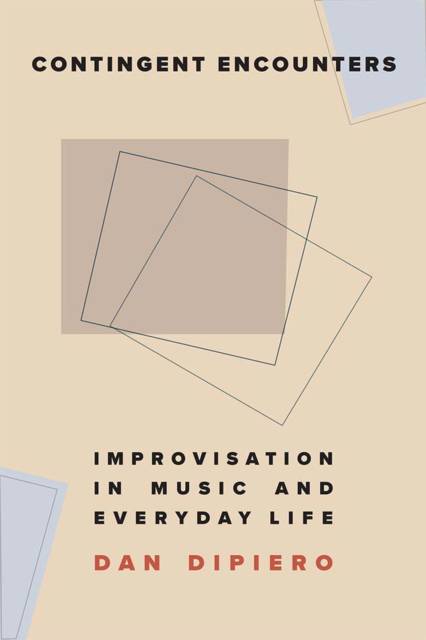
- Afhalen na 1 uur in een winkel met voorraad
- Gratis thuislevering in België vanaf € 30
- Ruim aanbod met 7 miljoen producten
- Afhalen na 1 uur in een winkel met voorraad
- Gratis thuislevering in België vanaf € 30
- Ruim aanbod met 7 miljoen producten
Zoeken
€ 109,45
+ 218 punten
Uitvoering
Omschrijving
Contingent Encounters offers a sustained comparative study of improvisation as it appears between music and everyday life. Drawing on work in musicology, cultural studies, and critical improvisation studies, as well as his own performing experience, Dan DiPiero argues that comparing improvisation across domains calls into question how improvisation is typically recognized. By comparing the music of Eric Dolphy, Norwegian free improvisers, Mr. K, and the Ingrid Laubrock/Kris Davis duo with improvised activities in everyday life (such as walking, baking, working, and listening), DiPiero concludes that improvisation appears as a function of any encounter between subjects, objects, and environments. Bringing contingency into conversation with the utopian strain of critical improvisation studies, DiPiero shows how particular social investments cause improvisation to be associated with relative freedom, risk-taking, and unpredictability in both scholarship and public discourse. Taking seriously the claim that improvisation is the same thing as living, Contingent Encounters overturns long-standing assumptions about the aesthetic and political implications of this notoriously slippery term.
Specificaties
Betrokkenen
- Auteur(s):
- Uitgeverij:
Inhoud
- Aantal bladzijden:
- 260
- Taal:
- Engels
Eigenschappen
- Productcode (EAN):
- 9780472133154
- Verschijningsdatum:
- 31/08/2022
- Uitvoering:
- Hardcover
- Formaat:
- Genaaid
- Afmetingen:
- 157 mm x 231 mm
- Gewicht:
- 376 g

Alleen bij Standaard Boekhandel
+ 218 punten op je klantenkaart van Standaard Boekhandel
Beoordelingen
We publiceren alleen reviews die voldoen aan de voorwaarden voor reviews. Bekijk onze voorwaarden voor reviews.







